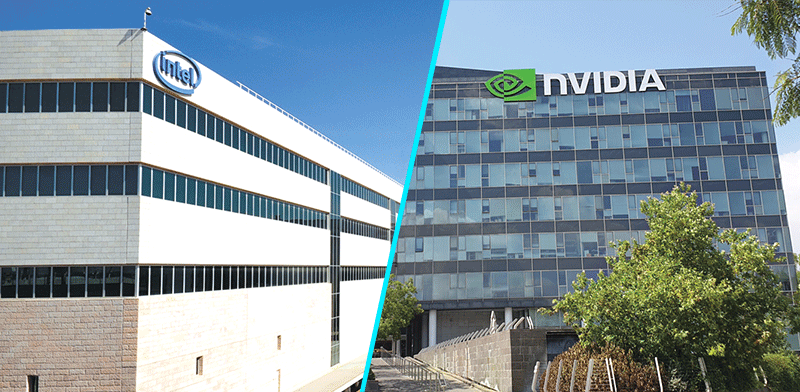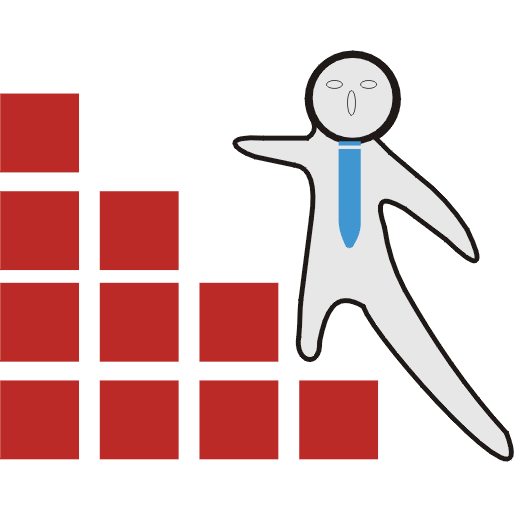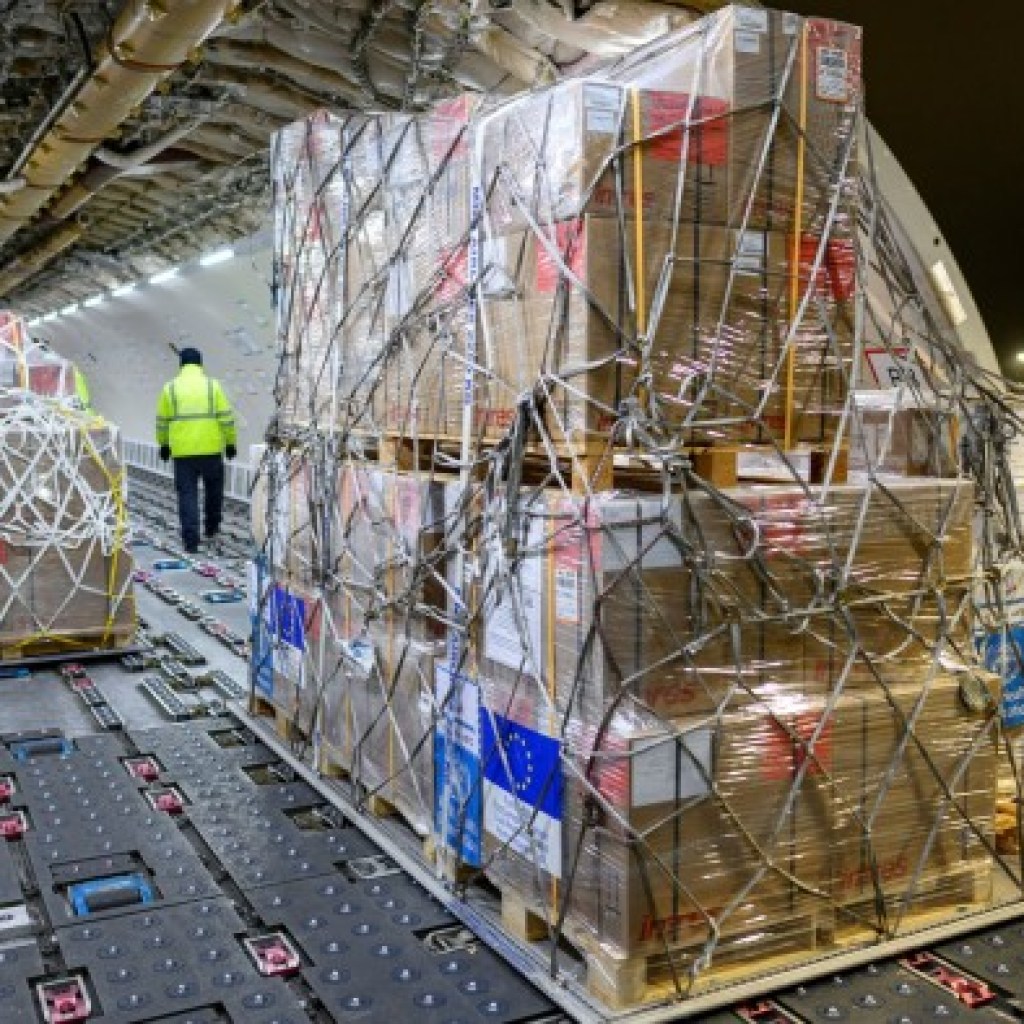Leading global technology companies, led by Nvidia, are currently in advanced talks with the Israeli Ministry of Finance regarding innovative tax arrangements in Israel, Globes has learned. In the talks, chip giant Nvidia proposed a unique arrangement — raising Israel’s tax rate to 9% on activity, a move that could bring about NIS 10 billion a year into state coffers.
The proposal is based on the taxability rule – a mechanism established as part of the OECD’s Pillar Two model reforms. This mechanism is designed to prevent a situation where international companies use complex tax structures to shift profits to countries with low or no taxes, and allows countries (mainly in Europe) to collect an “additional tax” of up to 9% when a company pays low taxes in another country. . In the case of Nvidia, the company proposes, through its own initiative, to pay this 9% directly to Israel, rather than distributing the money among different countries. The move appears to be beneficial for both parties: Israel will receive significant tax revenues that would otherwise go to other countries, and Nvidia will pay the tax in Israel, where it already has significant operations. Nvidia is estimated to pay the current tax rate of 5% – the minimum under the Capital Investment Encouragement Act.
Talks with Nvidia – critical timing
Negotiations between international companies and the state over the tax benefits and grants they will receive in exchange for operating in the country are not new. In 2023, Intel, for example, one of the first major global technology companies to build a significant presence in Israel, decided to double the size of its factory in Kiryat Gat. In return, the state announced that it would give Intel 11.1 billion shekels, while the chip giant, for its part, agreed to increase the corporate tax from 5% to 7.5%, which will apply only to its factories and not to its development centers. (Which will continue to pay 12%).
Nvidia’s second largest development center outside the United States is located in Israel, and is one of the country’s largest employers with more than 3,300 employees at development centers in Yokneam, Tel Aviv, Raanana, Jerusalem, Beersheba, Kiryat Gat and Tel Hai.
The talks are taking place at a critical time – in the coming days, a professional team in the Finance Ministry is expected to make recommendations to Finance Minister Bezalel Smotrich on how Israel should handle the global corporate tax. In other words, moving to a tax of at least 15% on multinational corporations. The professional team includes representatives of the Tax Authority, the Director of State Revenue, and the Budget Department, and is required to formulate solutions that allow Israel to remain attractive to international companies, even when they are unable to take advantage of sometimes reduced tax rates. Less than 10% within the Capital Investment Encouragement Law.
“While the regular corporate tax rate in Israel is 23%, companies operating under the Capital Investment Encouragement Law can benefit from reduced tax rates of between 5% and 16%,” a senior tax expert told Globes. “But in recent years New laws have been enacted in many countries that oblige companies to supplement the tax with a minimum of 15% – if not in one country, then in another.”
Contents
Related articles

In Israel, Nvidia is acquiring employees who leave Intel
Regulators finally approved Nvidia’s $800 million acquisition of Run:ai
At the same time, to ensure that large companies pay fair tax rates, there are two complementary laws – the 15% law which guarantees a minimum tax on all corporate profits, and the 9% law which applies to specific payments between countries such as interest. Royalties and service fees. The second law comes into play when a company transfers these payments to a country with a tax rate of less than 9%, and the country that sent the payment can collect an additional tax to bring it up to 9%. The two laws work together to prevent a situation in which companies exploit tax gaps to reduce tax liabilities, either by shifting profits to low-tax countries or by shifting special payments between branches of the same company.
Why do companies want to pay minimum taxes in Israel in particular? The tax expert explains that this is due to several basic reasons. Firstly, because they would have to supplement the tax to at least 15% in some countries anyway, and “it is better for them to pay in the country where they develop technologies and are very active. Secondly, in many cases, the initiative comes from the Ministry Israeli Finance, which is reaching out to companies and offering them a “package deal” – minimum taxes, and in return they will receive other benefits and Nvidia is also seeking to enshrine this in a special agreement that includes protection from future changes in tax rates in Europe, explains a knowledgeable source “This order reflects uncertainty in the market,” details to Globes. “Nvidia wants to make sure it doesn’t find itself paying double taxes.”
Many countries have adopted this reform, but what about the United States?
The current situation is complex for multinational companies, especially due to uncertainty in the United States, where legislation on global minimum taxes has stalled due to political disputes. While many countries, including the European Union, the United Kingdom, South Korea, Japan, Canada and Norway, have already adopted the reform and begun implementing it last year, the situation in the United States is different. In the absence of major policy change, full implementation of the reform in the United States is not expected before 2026, with Republicans tending to oppose the introduction of global rules that would limit the ability of the United States to set its own tax policy.
According to the Smotrich decision, Israel is expected to apply a minimum tax regime to multinational companies with a turnover of 750 million euros or more from 2026. This is a radical change for companies like Intel, which enjoy tax rates of less than 10% for construction. Factories in the suburbs. However, the economic potential for Israel from the proposed arrangement is enormous, according to market sources, amounting to billions of shekels in revenue annually, which could flow into state coffers, rather than the coffers of other countries.
“Everyone is waiting to see what Trump will do.”
The team currently working in the Ministry of Finance is supposed to formulate a package of benefits that will keep Israel attractive to these companies, so that they do not transfer the centers they have established in Israel to other countries where labor costs and expenses are lower. However, Nvidia is not alone. In recent months, business figures and representatives of multinational companies operating in Israel have appeared before the team, offering their conditions for continuing operations in Israel when they can no longer benefit from the lower tax rates they receive under the Capital Investment Encouragement Law.
Meanwhile, US and multinational companies around the world are waiting to see what Donald Trump will do with flat corporate tax rates once he is sworn in as President of the United States next week. He added: “Everyone is waiting to see what he will do, because there has been talk that he will eliminate the flat tax requirement on corporations – an initiative promoted by President Biden. We are in contact with the US Internal Revenue Service and there we are also waiting.” Let’s see what Trump will do,” says a senior Finance Ministry official.
Published by Globes, Israel Business News – en.globes.co.il – on January 13, 2025.
© Copyright Globes Publisher Itonut (1983) Ltd., 2025.

Say Job City in Pakistan for today latest jobs opportunities in private and Govt departments. View all new Government careers collected from daily. sayjobcity.com


